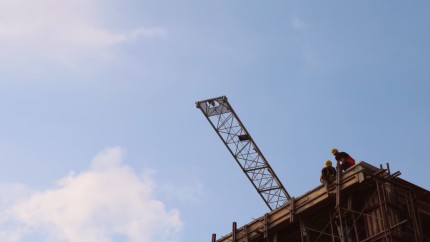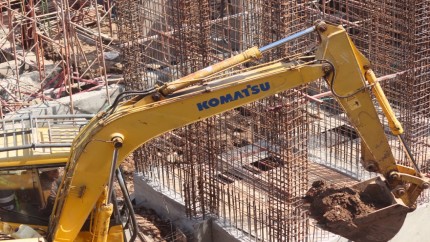January 2022 Currently, the new coronavirus variants are again clouding the mood of the global economy. But long-term investors in the real estate market, in particular, are paying more attention to whether rising inflation rates and supply chain problems will last, especially in the construction sector – the macroeconomically-based real estate market outlook 2022.
Looking at the current rate of price increases seems like a throwback to the seventies: Back then, inflation rates of five or more percent were the order of the day. Then-Federal Finance Minister and later Chancellor Helmut Schmidt coined the legendary phrase in 1972: "Five percent price increases are easier to bear than five percent unemployment." Politically and socio-politically, this may even still be true today. But the distorting effects of inflation cannot simply be ignored.

Supply chain problems: Prices for raw materials explode
This is not least true in the real estate sector, where generally rising prices are further catapulted upwards by ongoing problems in global supply chains. This is being felt by the construction industry, construction companies and commercial investors, but also by private home builders. In a recent survey by the ifo Institute, a third of all firms in the construction sector complained about a shortage of materials. And what is scarce, for example because containers in the Far East cannot be loaded quickly enough because of the pandemic, or because there are no free containers on the ships, increases in price: According to figures from the Federal Statistical Office, sawn timber was 73 per cent more expensive in November 2021 than two years earlier. Aluminium (+64 per cent), iron ore (+47 per cent) and processed steel (+40 per cent), without which nothing can be done in and on construction, also massively increased in price in a two-year comparison.
"Supply chain problems are a challenge for the construction sector as well. The risk of poor planning is increasing in terms of costs and processes. However, we expect the situation on this front to gradually ease during the second half of 2022," says Dr Cyrus de la Rubia, Chief Economist at Hamburg Commercial Bank.

Inflation: no end in sight
According to him, high inflation rates will remain in the medium term. This could lead to rising interest rates. In the USA, the Federal Reserve is already taking action, while the European Central Bank is unlikely to raise its key interest rate in 2022, according to de la Rubia's assessment, given the somewhat more fragile economic situation in the Eurozone. Nevertheless, the markets tend to anticipate rising interest rates: "Long-term interest rates will turn positive before the end of this year," says de la Rubia, referring to ten-year federal bonds.
What impact does the interest rate turnaround on the horizon have on real estate prices? According to de la Rubia, higher long-term interest rates should not leave commercial real estate completely unscathed. However, major upheavals are not to be expected in 2022. According to his assessment, the low vacancy rates for office and residential properties in the seven top German locations of Berlin, Hamburg, Düsseldorf, Cologne, Frankfurt am Main, Stuttgart and Munich will have a stabilising effect.